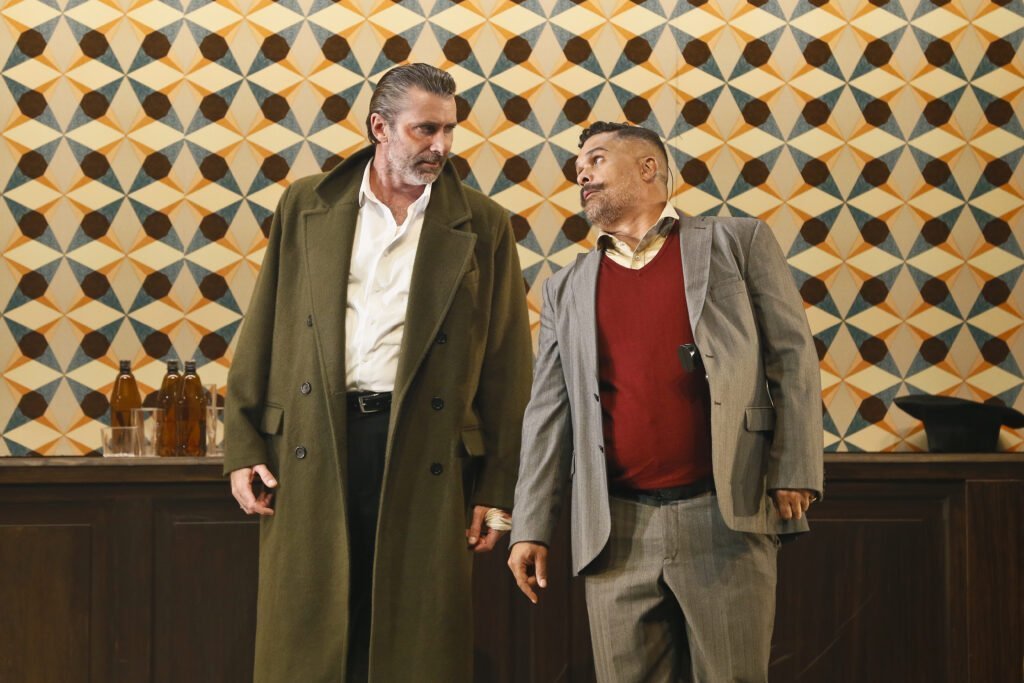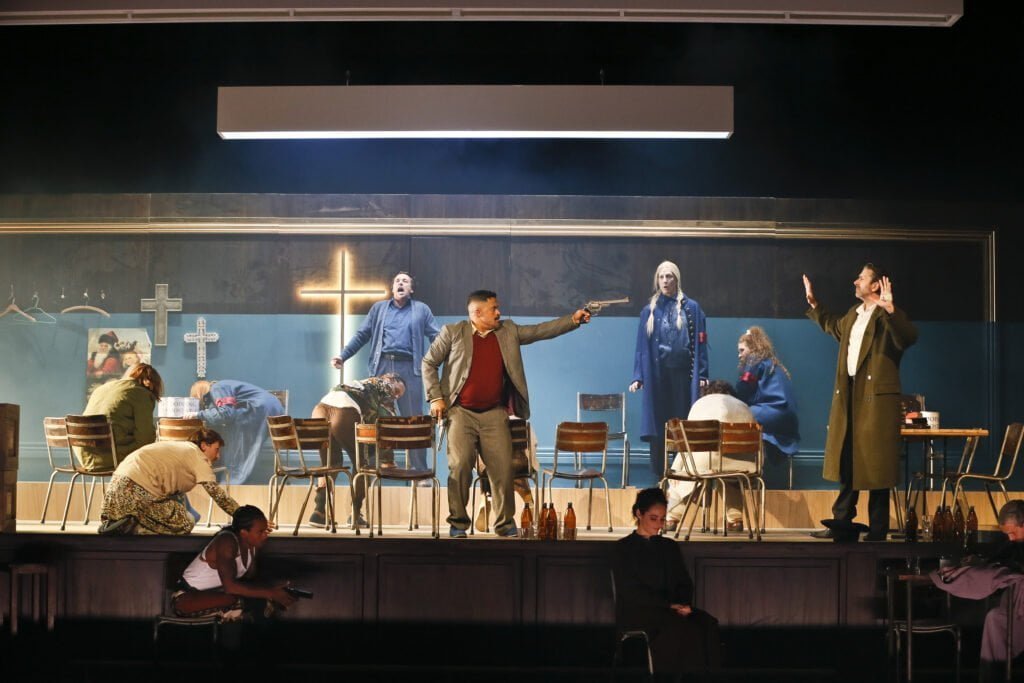HAPPY END. Music by Kurt Weill. Lyrics by Bertolt Brecht. Victorian Opera, Wednesday March 23, 2022. Arts Centre Playhouse, Melbourne. Book by Elisabeth Hauptmann. English lyrics by Michael Feingold. Directed by Matthew Lutton. Conducted by Phoebe Briggs.
Reviewed for Opera Gazet by David Meadows.
You can have any review automatically translated. Just click on the Translate button,
which you can find in the Google bar above this article.
I dislike writing negative reviews. Not only because I dislike attending shows that are sufficiently lacking that they demand them, but also because I dislike having to find positive ways to give artists negative criticisms. I’ve never understood the need to be mean about creative endeavours offered in good faith, so this matters to me.
Victorian Opera is the state opera company here, and alongside their independently funded rivals Melbourne Opera (whose last two productions I have reviewed for this website) and the Sydney-based national company, Opera Australia, who spend a few months a year down here, VO provide much of the “first tier” professional operatic content for opera-loving Melburnians. For its most recent production, it has enlisted a director of note, Matthew Lutton, whose credits in opera and theatre are not inconsiderable, a conductor of equally high standing, Phoebe Briggs, a cast whose collective track record is something of an embarrassment of riches in the musical theatre, and has selected a work by one of the most iconic composer/lyricist teams in history. All factors which pointed, on paper at least, to a tremendous success.
So what on earth went wrong in the Arts Centre Playhouse on opening night?

The first problem is the work. Happy End will always be poor cousin to Guys & Dolls, with whom it shares its entire narrative conceit. Weill’s piece, however, is devoid of all the things that makes Loesser’s so endlessly charming and such a staple of the repertoire. It is structurally problematic, boasts poorly-drawn and largely deeply unsympathetic characters, and it meanders its way through a wafer thin, implausible plot. Sadly, Lutton’s production did exactly nothing to overcome these considerable shortcomings. The show had nothing to say and no real reason to exist. It was because it was, and the pointlessness of the endeavour was palpable. The director’s obvious indifference was the elephant in the room. Why program the piece at all in that case? Some pieces are director-proof. This isn’t one of them.
Both the production and the cast were wildly uneven. The very occasional bursts of vitality occurred mainly during the musical numbers, with a couple of even tinier moments of lazzi hinting at a delicious wackiness in the Tex Avery / Spike Jones vein, (very) briefly threatening to give the evening a little fire, but they were infrequent enough, and sufficiently unevenly distributed, as to be clearly accidental.
Lucy Maunder as Hallelujah Lil almost saved the evening. Despite the material and the absence of direction, she created a borderline sympathetic portrayal of the piecemeal character, and her singing was first-rate, especially in “The Sailors’ Tango”, which was a joy: pure, crisp, lush of tone, and delivered with depth of meaning.
Jennifer Vuletic was a deliciously cracked Major Stone, contributing some of that aforementioned Tex Avery vibe, and managing to balance legitimate dramatic focus and comedic chops in a way that nobody else got within sight of.
Adam Murphy gave “Beerhall” Bill Cracker a stolid, baritonal, leading man quality, but seemed content to leave his interpretation at that.
Everyone else took advantage of Lutton’s directorial insouciance to offer up a dog’s breakfast of over-the-top characterisations and patchy accents, almost all of which slipped right past acting and face-first into caricature – which in itself might have been an effective interpretive gambit had any kind of effort been made to apply some consistency to it. Sadly, it was fairly apparent that this was a case of “every actor for themselves” among a company had been left to its own devices.
The ensemble were altogether too young across their ranks – too obviously a bunch of kids straight out of drama school – to be credible as either the Salvation Army unit or the rambling indigents that shuffle into their service.

Sadly, and despite her starry résumé, Marg Horwell’s set and costume design also fell prey to the resolute amorphousness of the production, offering very little in the way of authentic innovation, re: Brechtian traditions, and with her and Lutton’s token gestures to timelessness coming across simply as feckless anachronisms.
Phoebe Briggs conducted a fine band efficiently, and offered some lovely flourishes to Weill’s score, especially during “The Mandalay Song”, but the musical numbers, ironically, form so little of a show that is unusually dialogue-heavy for a pure opera company, that her efforts were little more than band-aids to a mauling.
